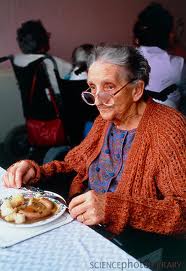Her name was Miss Loretta. A hospice volunteer, I admired her brown, wrinkled hands often when I visited her weekly at a Detroit, Michigan nursing home. During our conversations, her aged hands and soft whispers reflected happy highs and tragic lows of muddled memories from our shared history. Our common heritage included countless years when we did not know each other. But history bridged our communication beyond her debilitating dementia that intensified during our many meetings before she died.
Recently, I thought about Miss Loretta when I discovered a website with photos featuring elderly hands. Immediately grabbing my attention were mesmerizing hands very similar to Miss Loretta's. I felt her presence reassuring me again in her own unique way through scattered recollections of historical backstories. I recalled a poem I had written years ago that was inspired by our special kinship. Miss Loretta's spirit continues to influence my life as I create my own wrinkled legacy.
The following poem is my special tribute to Miss Loretta and our awe-inspiring ancestors who endured the unendurable while creating pathways for future generations. Their helping hands and unwavering resilience gifted us with treasured testimonies about joy, pain, courage and survival beyond dementia and far deeper than words.
"Deeper Than Words" by Frances Shani Parker
The outside world arrives wearing my willing face.
Toothless, your smile widens like a baby's hungry for attention.
Almost ninety-eight years old, your inner candle still glows.
A hospice volunteer, I lean closer, talk into your listening left ear.
"Today is Sunday, Miss Loretta." My news drifts away like smoke.
You stare at me through dying coals. Whatever I ask, you whisper, "Yes."
I stroke your age-softened hands while your hazed mind masters sleep.
Watching you, I dream generations of women black and strong,
each one a book of sustaining stories about joy, pain, courage, survival.
Within your warm, brown frame, spirits from our common history linger.
Aides say you have dementia, that you don't know a word I say.
Our language goes deeper than words. We speak to each other's souls.
Frances Shani Parker is author of Becoming Dead Right: A Hospice Volunteer in Urban Nursing Homes available in paperback and e-book editions in America and other countries at online and off-line booksellers. Visit Hospice and Nursing Homes Blog and Frances Shani Parker's Website.













